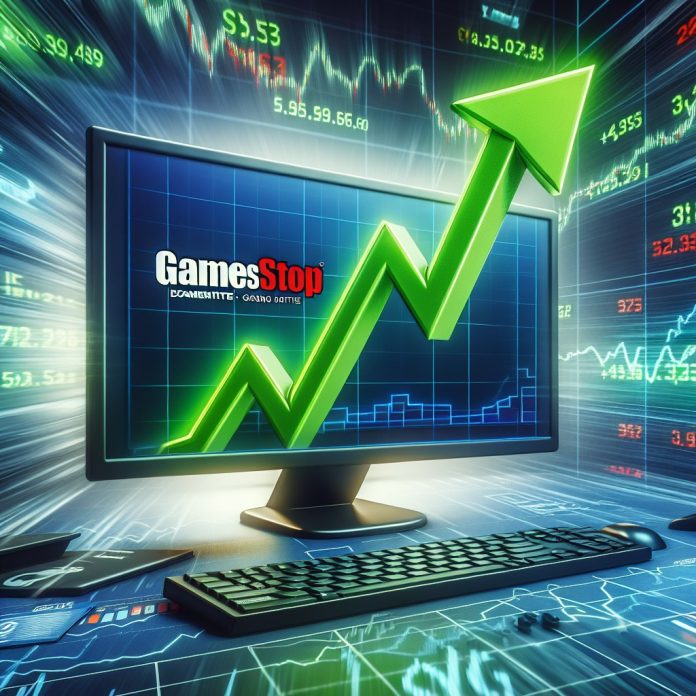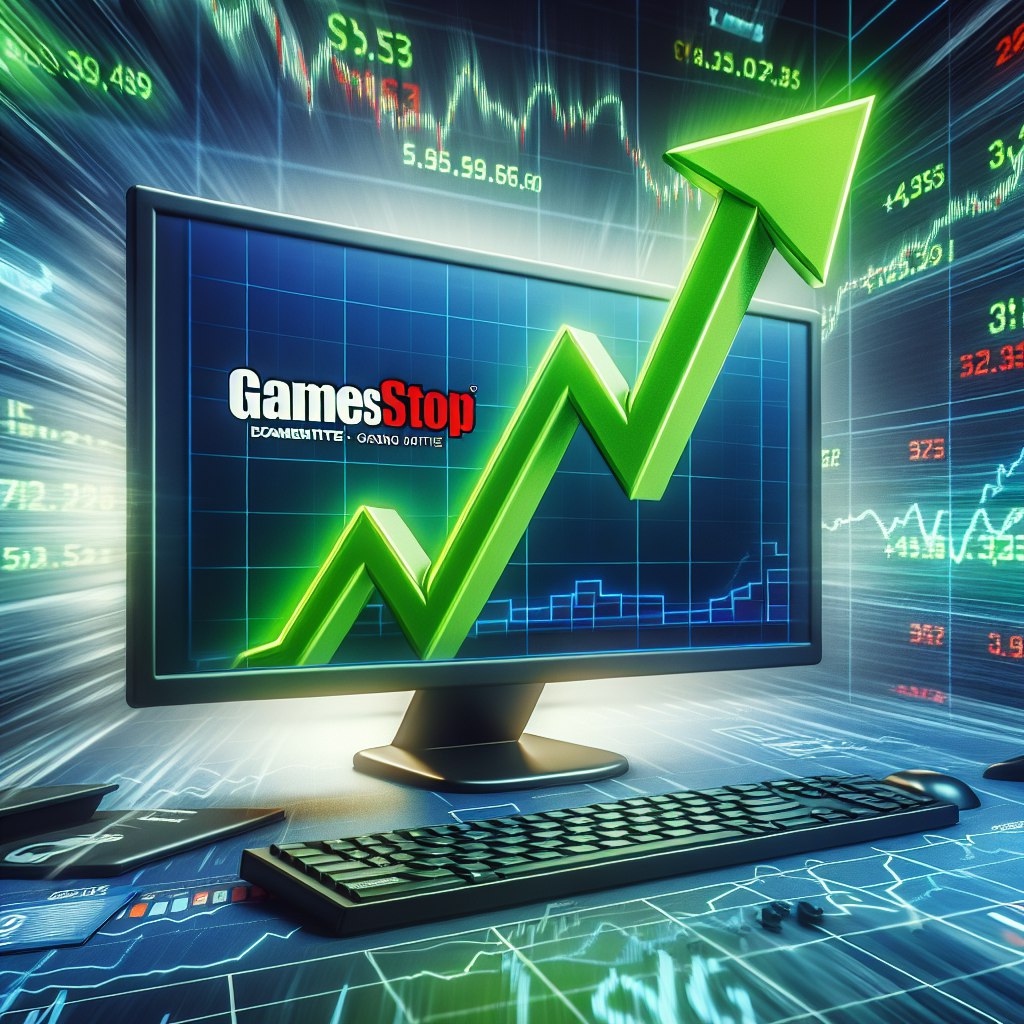
🕹️ Introduction The term “GME” has become a buzzword in the financial world, particularly following the unprecedented events of early 2021. But what exactly is GME, and why has it garnered so much attention? This article delves into the meaning of GME, the story behind GameStop, and its broader implications for the stock market and retail investors.
🏬 What is GameStop (GME)? GameStop Corp. (GME) is a retail company specializing in video games, consumer electronics, and gaming merchandise. Founded in 1984, the company operates thousands of stores worldwide, primarily in the United States. GameStop has been a well-known name among gamers for decades, serving as a go-to destination for purchasing new and used video games and consoles.
📉 The Struggles of a Brick-and-Mortar Business Like many traditional brick-and-mortar retailers, GameStop faced significant challenges in recent years. The rise of digital downloads, online gaming platforms, and competition from e-commerce giants like Amazon led to declining sales and mounting financial pressure. By 2019, GameStop’s stock price had plummeted, reflecting investor skepticism about its future.
💡 The Short Squeeze Explained The story of GME took a dramatic turn in January 2021, when a group of retail investors on the subreddit r/WallStreetBets orchestrated a short squeeze on GameStop’s stock. To understand this phenomenon, it’s essential to grasp the concept of short selling.
Short selling is a strategy used by investors who believe a stock’s price will decline. They borrow shares and sell them, hoping to buy them back at a lower price, return the borrowed shares, and pocket the difference. However, if the stock price rises instead of falling, short sellers face significant losses as they scramble to buy back shares at higher prices to cover their positions.
In GameStop’s case, a substantial number of shares had been sold short. When retail investors began buying up GME shares en masse, the stock price skyrocketed, forcing short sellers to cover their positions by buying shares at inflated prices, which further drove up the stock price. This chain reaction is known as a short squeeze.
📈 The Meteoric Rise of GME The impact of the short squeeze on GME’s stock price was nothing short of extraordinary. In a matter of weeks, GameStop’s stock price surged from around $20 per share to an all-time high of $483 per share on January 28, 2021. This unprecedented rise generated massive profits for early investors and inflicted substantial losses on hedge funds and other institutional investors who had bet against the stock.
🌐 The Role of Social Media and Retail Investors The GameStop saga highlighted the growing influence of social media and online communities in the stock market. Platforms like Reddit, Twitter, and Discord became hubs for retail investors to share information, strategies, and rallying cries. The collective action of millions of individual investors demonstrated that they could challenge the dominance of institutional players in the market.
For many retail investors, buying GME shares was not just about making money; it was also a form of protest against perceived market manipulation and the power of Wall Street elites. The movement embodied a sense of democratization, empowering everyday people to have a voice in the financial markets.
🔍 The Fallout and Regulatory Scrutiny The GME frenzy attracted widespread media coverage and scrutiny from regulators. The extreme volatility prompted several trading platforms, including Robinhood, to temporarily restrict trading in GameStop and other heavily shorted stocks. These restrictions sparked outrage among retail investors, leading to allegations of market manipulation and calls for greater transparency.
In response, lawmakers and regulatory bodies launched investigations into the events surrounding the GME short squeeze. The Securities and Exchange Commission (SEC) and other agencies examined the role of social media, trading platforms, and hedge funds in the volatility, seeking to understand and address potential market vulnerabilities.

💼 Impact on the Stock Market The GameStop phenomenon had significant implications for the broader stock market. It highlighted the power and influence of retail investors, who had historically been considered less impactful than institutional players. The event also underscored the importance of understanding market dynamics and the potential risks of short selling.
Moreover, the GME saga prompted a reevaluation of market regulations and practices. Lawmakers and regulators considered measures to increase transparency, enhance market stability, and protect retail investors. These discussions aimed to strike a balance between fostering innovation and ensuring fair and orderly markets.
📊 Lessons for Investors The GameStop episode provided valuable lessons for investors, both retail and institutional. It emphasized the importance of conducting thorough research and understanding the risks involved in trading. The extreme volatility of GME’s stock price demonstrated that market movements could be driven by factors beyond traditional financial metrics.
Additionally, the event underscored the need for risk management and diversification. Investors who put significant portions of their portfolios into highly volatile stocks faced substantial gains and losses. Diversifying investments across different asset classes and sectors can help mitigate risk and enhance long-term financial stability.
🌟 The Future of GameStop In the aftermath of the short squeeze, GameStop embarked on a transformation journey. The company appointed new leadership, including Ryan Cohen, co-founder of Chewy, as chairman of the board. Cohen’s vision focused on shifting GameStop’s business model toward e-commerce and digital initiatives, aiming to revitalize the brand and leverage its strong customer base.
The future of GameStop remains uncertain, but the company’s efforts to adapt to changing market dynamics and consumer preferences could play a crucial role in its long-term success. Investors and analysts continue to closely monitor GameStop’s performance and strategic initiatives as it navigates the evolving retail landscape.
📜 Conclusion So, what is GME? At its core, GME represents GameStop, a video game retailer that became the focal point of an unprecedented stock market event. The short squeeze orchestrated by retail investors on social media platforms catapulted GameStop into the spotlight, challenging conventional notions of market power and influence.
The GameStop saga highlighted the democratizing potential of retail investors and the growing impact of social media on financial markets. It also prompted regulatory scrutiny and sparked discussions about market regulations and practices. For investors, the event underscored the importance of research, risk management, and diversification.
As GameStop continues its transformation journey, its future remains uncertain but full of potential. The lessons learned from the GME phenomenon will shape the strategies and approaches of investors, regulators, and market participants for years to come.
In summary, GME is more than just a stock ticker; it represents a turning point in the financial world, illustrating the power of collective action and the dynamic nature of modern markets. Whether as a cautionary tale or an inspiration, the story of GameStop and GME will be remembered as a defining moment in the history of investing.



















